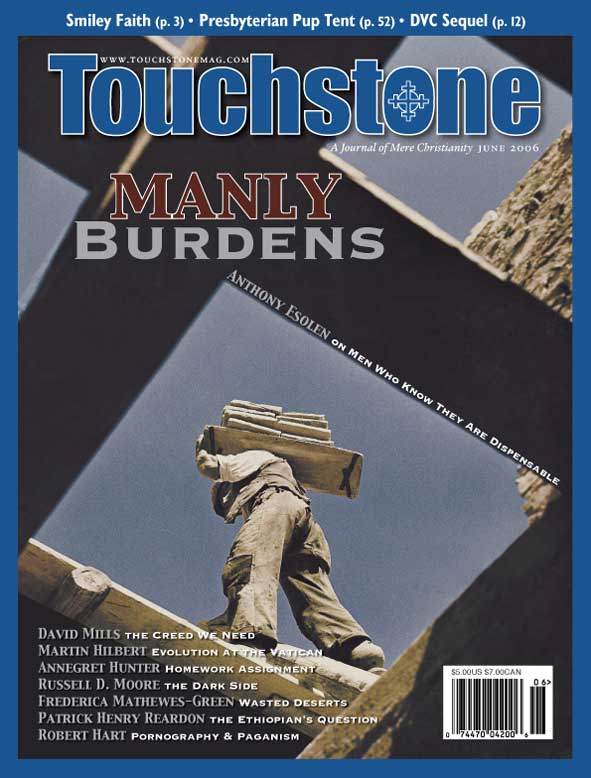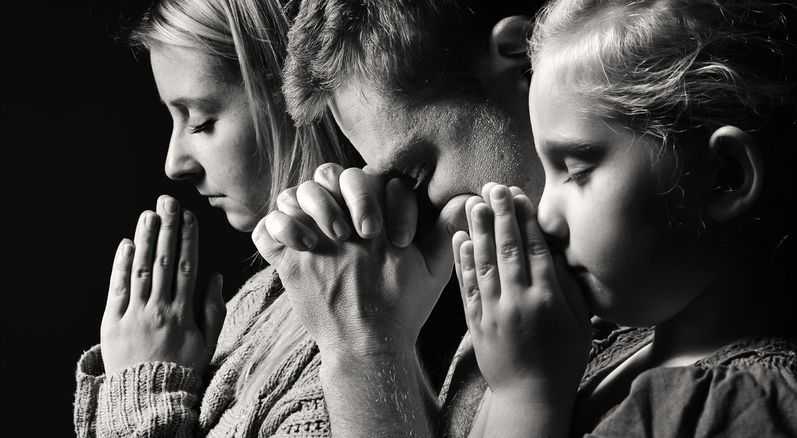Sand But No Son
Gifts of the Desert: The Forgotten Path of Christian Spirituality
by Kyriacos
C. Markides
Doubleday, 2005
(370 pages, $23.95, hardcover)
reviewed by Frederica Mathewes-Green
Markides is a sociology professor at the University of Maine, and his research has led him to conclusions that are rare among social-science academics. He has come to believe that we are surrounded by unseen spiritual realities, and that it is possible, through repentance and prayer, to encounter and be transformed by them.
He has come to believe in miracles, and that this world is not the result of blind chance. In many ways he is rediscovering the Greek Orthodoxy he was exposed to in childhood, and finding it full of wonders.
Parallel Path
Markides’s previous book, The Mountain of Silence (2001), was read eagerly by those interested in Orthodox spirituality, chiefly because he had faithfully transcribed taped conversations with a monk trained on Mt. Athos, Father Maximos. Though Markides himself seemed not wholly on board with small- o orthodox Christianity, he was obviously fascinated by it, and Fr. Maximos’s verbatim teachings were worth more than the price of admission.
That’s why fans of Mountain of Silence have been looking forward to Gifts of the Desert. But a friend who read an early copy told me, “Somehow, it’s pretty dry.” It took me half the book to figure out what’s causing this dryness: It’s that Jesus is missing.
The person who says, “I like Jesus, but I have no use for the church” is a cliché, but Markides is the opposite. He stands in awe of the Church (which he always calls by the Greek term, Ecclesia), but has no interest in Jesus. He is convinced that spiritual transformation, of the kind envisioned in Buddhism, Yoga, and Zen, is possible, and that a parallel path has been preserved in the traditions of Eastern Christianity. I happen to agree with that, and am grateful to have him as a teammate in the project of bringing knowledge of this “Forgotten Path” to Western readers.
But one of Markides’s chief concerns is to make the Orthodox way of spiritual transformation available to those who “are not necessarily Orthodox or even Christian.” Follow his train of thought as he presents his five “assumptions” to Fr. Maximos: (1) “The world of the five senses is not the only world there is”; (2) “Other [hierarchically arranged] worlds exist that interpenetrate our own”; (3) “[T]he various worlds are in ongoing communication with one another”; (4) “[W]e as a species and as individuals are never alone”; and (5) “[T]he world is utterly meaningful.” An orthodox Christian might scratch his head, but conclude that, if he means what you think he means, you’re probably both on the same track.
Divisive Jesus
However, Markides expands on his third point like this: “Some members of our own reality make contact with these higher realms. We have called them shamans, psychics, prophets, saints, and so on. Their reports of what they find always are couched within the language of the culture that these gifted people happen to live in. Therefore, knowledge of these higher worlds is always colored, filtered, and distorted in varying degrees through the cultural constructions of time and place. Even living saints are subjected to this law.”
My guess is that this is the reason why Gifts of the Desert always presents the goal of the spiritual life as simply union with “God”: It would be divisive to bring in Jesus, as well as unnecessary. Jesus is just one more piece of culturally induced baggage.
So we have the topsy-turvy experience of reading fervent endorsements of the Church, Tradition, ascetic practices, miracles, and even forthright confrontation with those itchiest of topics, sin and repentance—yet the goal of our pilgrimage is not the Incarnate and Resurrected Friend who has erupted into so many lives, but something much more circumspect and vague. Humans are constructed to respond to other persons in a wholly different way than we do to theories or mystical conjectures. Flannery O’Connor’s “Holy Church of Christ Without Christ” has an inherent problem.
It’s a head-scratcher, all right. While scoring a notch below Mountain of Silence in terms of meaty content, Gifts of the Desert still does a diligent job of expounding the way of theosis. But at the end of 300-plus pages, it seems like a desert indeed.
Frederica Mathewes-Green is a columnist for Beliefnet.com and a contributor to the Christian Millennial History Project multi-volume series. Her books include At the Corner of East and Now (Putnam), The Illumined Heart (Paraclete Press), and The Open Door: Entering the Sanctuary of Icons and Prayer (Paraclete Press). She lives in Linthicum, Maryland, with her husband Fr. Gregory, pastor of Holy Cross Orthodox Church. They have three children and three grandchildren.
subscription options
Order
Print/Online Subscription

Get six issues (one year) of Touchstone PLUS full online access including pdf downloads for only $39.95. That's only $3.34 per month!
Order
Online Only
Subscription

Get a one-year full-access subscription to the Touchstone online archives for only $19.95. That's only $1.66 per month!
bulk subscriptions
Order Touchstone subscriptions in bulk and save $10 per sub! Each subscription includes 6 issues of Touchstone plus full online access to touchstonemag.com—including archives, videos, and pdf downloads of recent issues for only $29.95 each! Great for churches or study groups.
Transactions will be processed on a secure server.
more from the online archives

28.3—May/June 2015
Of Bicycles, Sex, & Natural Law
Describing Human Ends & Our Limitations Is Neither Futile Nor Unloving by R. V. Young
calling all readers
Please Donate
"There are magazines worth reading but few worth saving . . . Touchstone is just such a magazine."
—Alice von Hildebrand
"Here we do not concede one square millimeter of territory to falsehood, folly, contemporary sentimentality, or fashion. We speak the truth, and let God be our judge. . . . Touchstone is the one committedly Christian conservative journal."
—Anthony Esolen, Touchstone senior editor








